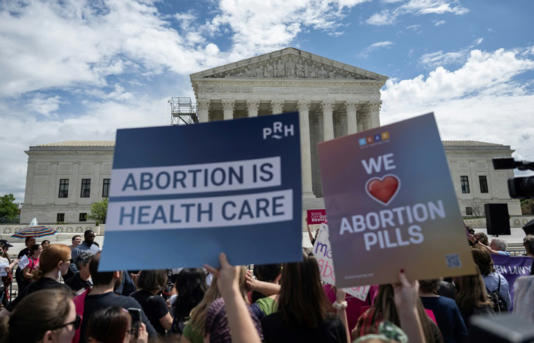The US Supreme Court’s upcoming deliberations on restrictions concerning the abortion pill mifepristone mark a significant moment in the ongoing debate over reproductive rights in the United States. This article explores the legal, medical, and ethical dimensions of the controversy surrounding access to abortion pills, examining the potential implications for women’s healthcare and constitutional rights.
The Legal Landscape: With a conservative majority on the Supreme Court, recent rulings have raised concerns about the erosion of abortion rights. We analyze the legal arguments presented in the case concerning mifepristone, including the jurisdiction of federal agencies, statutory interpretation, and the balance between state regulation and individual autonomy.
Medical Safety and Efficacy: Mifepristone has been recognized as a safe and effective method for terminating early pregnancies by leading medical organizations. We examine the scientific evidence supporting its use, debunking misconceptions and addressing concerns raised by anti-abortion groups regarding its safety profile and potential risks.
Access to Healthcare: Restrictions on mifepristone could have profound implications for women’s access to reproductive healthcare, particularly in underserved communities. We explore the disparities in access to abortion services, the impact of restrictive laws on marginalized populations, and the importance of preserving reproductive choice as a fundamental human right.
Patient Autonomy and Informed Consent: Central to the debate is the principle of patient autonomy and the right to make informed decisions about one’s own healthcare. We discuss the importance of preserving the doctor-patient relationship, respecting medical expertise, and ensuring that individuals have access to accurate information and comprehensive reproductive healthcare options.
Telemedicine and Innovation: The COVID-19 pandemic prompted temporary regulatory changes allowing for expanded access to mifepristone through telemedicine and mail-order distribution. We assess the impact of these innovations on patient convenience, privacy, and healthcare delivery, highlighting the potential benefits of telehealth in expanding access to abortion care.
Women’s Experiences and Voices: Amidst legal battles and policy debates, it is essential to center the voices and experiences of women who seek abortion care. We share personal narratives and testimonials from individuals who have benefited from mifepristone, emphasizing the importance of preserving reproductive autonomy and dignity.
Ethical Considerations: The discussion extends to ethical considerations surrounding abortion rights, including the moral agency of pregnant individuals, the value of bodily autonomy, and the societal responsibility to ensure equitable access to reproductive healthcare services.
Future Implications and Advocacy Efforts: The outcome of the Supreme Court’s decision will have far-reaching implications for abortion access, women’s rights, and public health policy. We explore potential scenarios and the role of advocacy organizations in safeguarding reproductive freedoms, promoting evidence-based policies, and advancing social justice.
As the US Supreme Court deliberates on restrictions concerning the abortion pill mifepristone, the broader conversation on reproductive rights and healthcare equity continues. It is imperative to uphold the principles of autonomy, dignity, and justice, ensuring that all individuals have access to comprehensive reproductive healthcare and the right to make informed choices about their bodies and futures.
